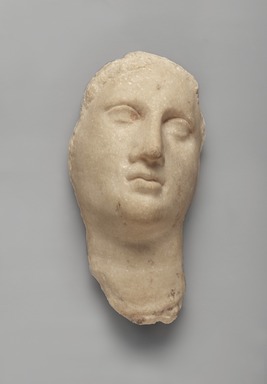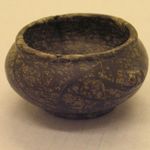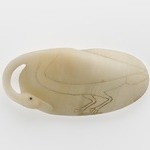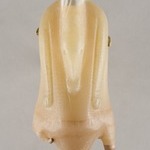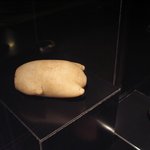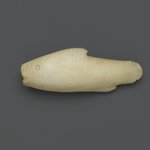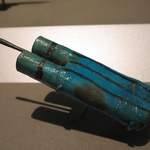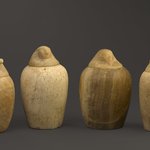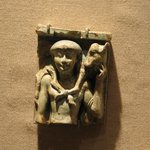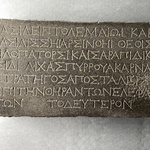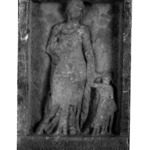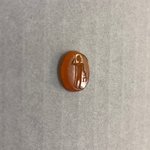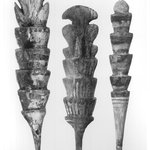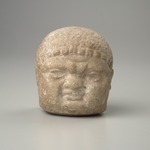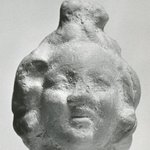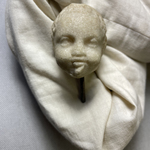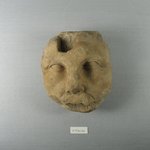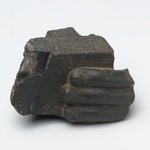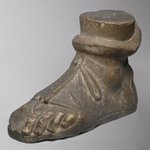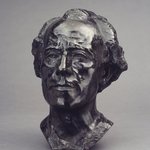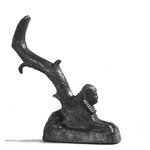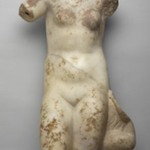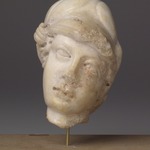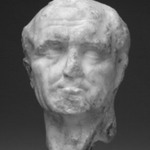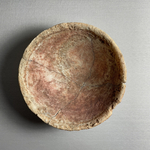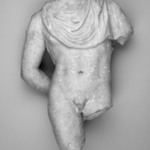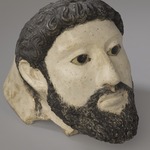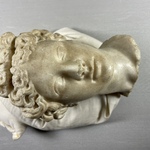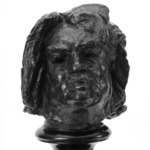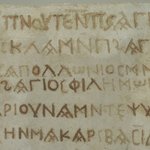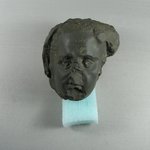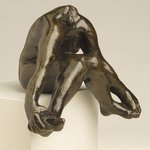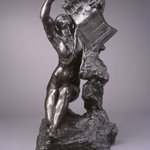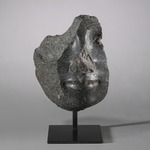Female Face and Neck
Egyptian, Classical, Ancient Near Eastern Art
MEDIUM
Marble, pigment
Possible Place Made: Egypt
PERIOD
late Ptolemaic Period to early Roman Period
DIMENSIONS
8 9/16 × 4 × 3 7/16 in. (21.8 × 10.2 × 8.7 cm)
mount: 12 1/2 × 4 1/4 × 4 1/2 in. (31.8 × 10.8 × 11.4 cm)
(show scale)
ACCESSION NUMBER
16.580.82
CREDIT LINE
Gift of Evangeline Wilbour Blashfield, Theodora Wilbour, and Victor Wilbour honoring the wishes of their mother, Charlotte Beebe Wilbour, as a memorial to their father, Charles Edwin Wilbour
PROVENANCE
Archaeological provenance not yet documented; by 1896, acquired in Egypt by Charles Edwin Wilbour; 1896, inherited from Charles Edwin Wilbour by Charlotte Beebe Wilbour; 1914, inherited from Charlotte Beebe Wilbour by Evangeline Wilbour Blashfield, Theodora Wilbour, and Victor Wilbour; 1916, gift of Evangeline Wilbour Blashfield, Theodora Wilbour, and Victor Wilbour to the Brooklyn Museum.
Provenance FAQ
CATALOGUE DESCRIPTION
Female face and neck in pentelic marble, presumably a fragment from a statue. Face of late Hellenistic type leaning to right. Full features, mouth slightly open. Remains of red and black paint in eyes. Hair indicated above forehead has slight traces of red paint. Possibly made as a separate piece, may have represented Venus, or Berenike II.
Good condition; good, if dull, workmanship.
MUSEUM LOCATION
This item is not on view
CAPTION
Graeco-Egyptian. Female Face and Neck. Marble, pigment, 8 9/16 × 4 × 3 7/16 in. (21.8 × 10.2 × 8.7 cm). Brooklyn Museum, Gift of Evangeline Wilbour Blashfield, Theodora Wilbour, and Victor Wilbour honoring the wishes of their mother, Charlotte Beebe Wilbour, as a memorial to their father, Charles Edwin Wilbour, 16.580.82. Creative Commons-BY (Photo: Brooklyn Museum, 16.580.82_PS9.jpg)
IMAGE
overall, 16.580.82_PS9.jpg. Brooklyn Museum photograph, 2014
"CUR" at the beginning of an image file name means that the image was created by a curatorial staff member. These study images may be digital point-and-shoot photographs, when we don\'t yet have high-quality studio photography, or they may be scans of older negatives, slides, or photographic prints, providing historical documentation of the object.
RIGHTS STATEMENT
Creative Commons-BY
You may download and use Brooklyn Museum images of this three-dimensional work in accordance with a
Creative Commons license. Fair use, as understood under the United States Copyright Act, may also apply.
Please include caption information from this page and credit the Brooklyn Museum. If you need a high resolution file, please fill out our online
application form (charges apply).
For further information about copyright, we recommend resources at the
United States Library of Congress,
Cornell University,
Copyright and Cultural Institutions: Guidelines for U.S. Libraries, Archives, and Museums, and
Copyright Watch.
For more information about the Museum's rights project, including how rights types are assigned, please see our
blog posts on copyright.
If you have any information regarding this work and rights to it, please contact
copyright@brooklynmuseum.org.
RECORD COMPLETENESS
Not every record you will find here is complete. More information is available for some works than for others, and some entries have been updated more recently. Records are frequently reviewed and revised, and
we welcome any additional information you might have.
Any cool facts about this?
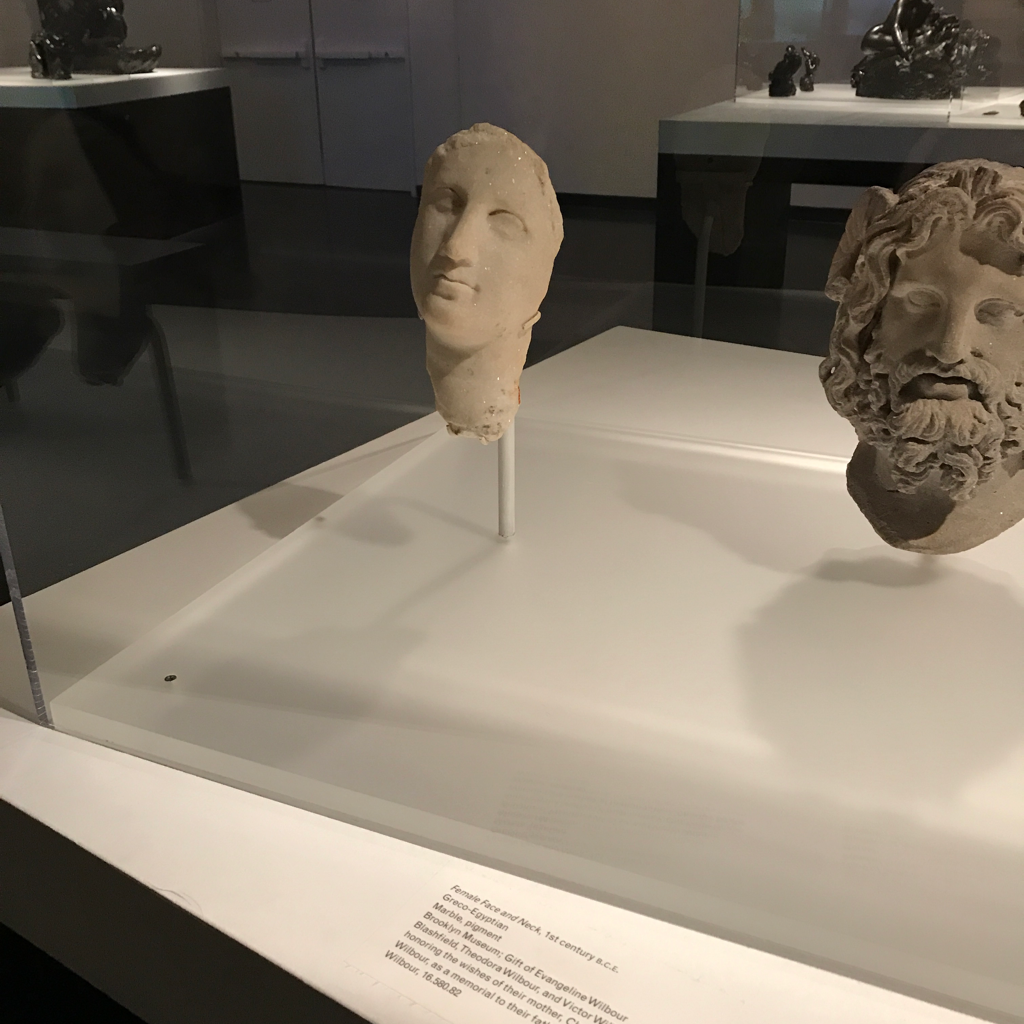
Sure! If you look very closely, you can still see traces of red paint in the hair! Most sculptures were brightly painted in ancient times.
Interestingly, the shape of her mouth is one of the ways we can tell that this fragment comes from the Ptolemaic or Hellenistic period.
Why is this incomplete?
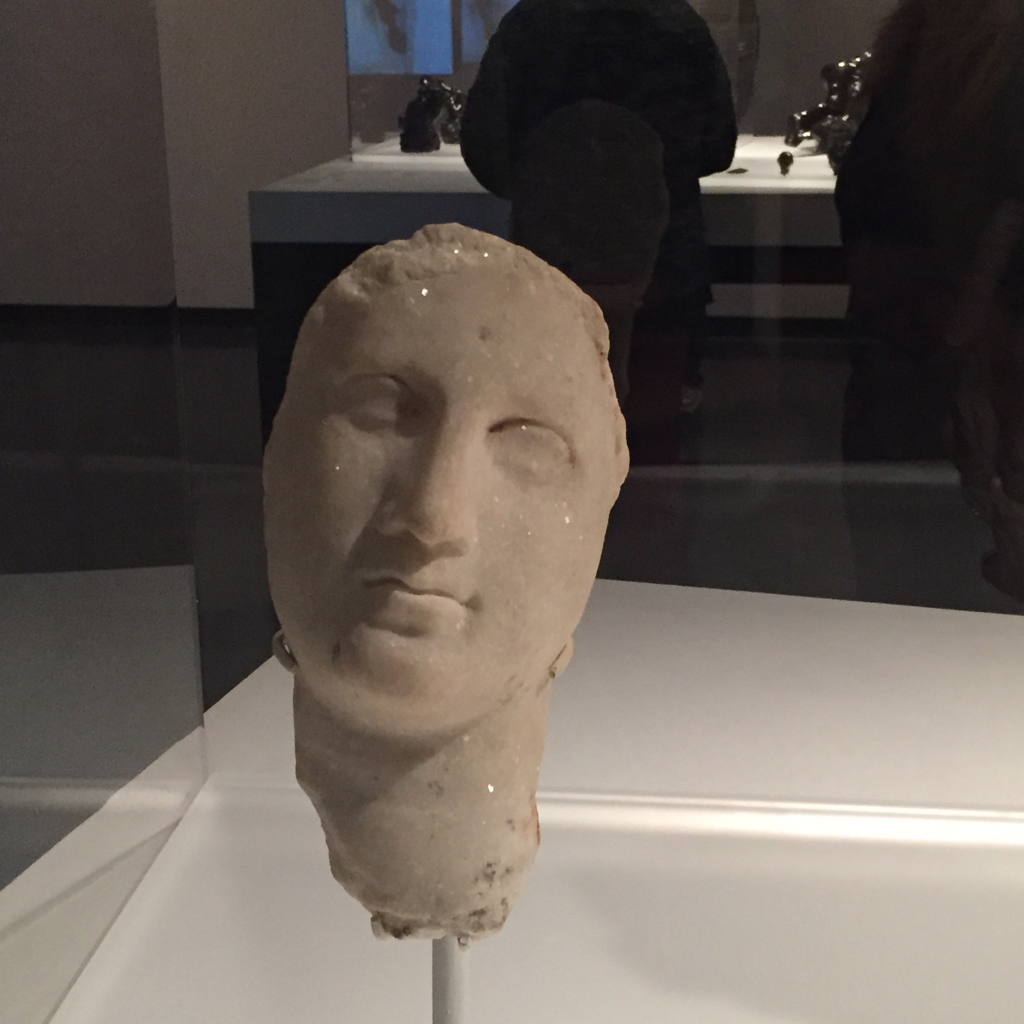
This is actually an ancient fragment which dates to the Ptolemaic period in Egypt. Rodin liked to collect ancient fragments and put them in his studio as inspiration for his own works.
